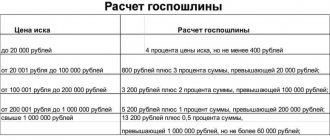Legal regime of marital property: general characteristics, concept
The legal regime of property is a regime where the husband and wife use the assets acquired during marriage jointly and have equal rights to them. Unlike the contractual one, where property relations are regulated by the marriage contract, under the legal regime, issues of ownership of property are determined by Chapter. 7 RF IC.
Under the legal regime, common property includes (Article 34 of the RF IC):
- Income from any labor activity;
- Pensions, benefits;
- Movable and immovable property purchased with money received during marriage;
- Shares, deposits, securities;
- Income from business and labor activities;
- Any other property acquired during the marriage.
An apartment purchased after marriage registration will be in joint ownership. Formally, the spouses each own ½, but according to the documents, shares are not allocated. Determination of shares is possible during the division of joint property or by agreement of the parties.
It is important to take into account that property registered in the name of children does not belong to the property of the parents (Clause 4 of Article 60 of the RF IC). The legislation differentiates the property rights of parents and the child, therefore, having registered real estate in his name, it can be re-registered as property in the future only with the consent of the guardianship authorities, subject to the provision of more comfortable housing to the minor.
Note! Even if one does not work and does not receive income, the earnings of the other are considered joint property.
Example:
A man and a woman got married and a child was born. My mother went on maternity leave, my father was working at the time. All money he earns is common property. Despite the distinction between the property rights of parents and children, the legislation establishes the obligation to support minors (Article 80 of the RF IC). In the event of separation, the parent living with the child has the right to recover child support from the spouse.
Moment of emergence of joint ownership
The legal regime begins to operate from the moment the marriage is registered. Things purchased before remain the property of the original owner, and the second spouse cannot lay claim to it. Even if the husband lives in his wife’s apartment or vice versa, in the event of separation, the owner has the right to demand to leave the premises.
Another thing is the disposal of valuables purchased since the establishment of joint ownership. In this case, even in the event of a divorce, both spouses can use the real estate acquired during marriage with equal rights. If they wish, they can divide everything by drawing up a division agreement or going to court.
Briefly: the legal regime gives spouses equal rights to property purchased after marriage. Common property is considered to be any real estate, valuables, shares, pensions, compensation payments, benefits, wages and money in general acquired from this moment on.
Property relations of spouses
Concepts and types of property relations between spouses
Property legal relations between spouses are social relations regulated by the norms of family law that arise between spouses from a marriage regarding their common joint property, as well as their mutual material support.
Based on the definition, two groups of property relations between spouses can be distinguished:
- regarding their common joint property;
- regarding mutual financial support: alimony legal relations between spouses.
When regulating the property relations of spouses, in addition to the norms of the Family Code of the Russian Federation, the provisions of the Civil Code of the Russian Federation are applied to the extent that they do not contradict the essence of family relations (Article 4 of the RF IC).
The current family legislation provides, depending on the will of the spouses, two possible legal regimes of the property of the spouses - legal and contractual.
Legal regime of marital property
In accordance with paragraph 1 of Art. 33 of the RF IC, the legal regime for the property of spouses is the regime for their joint ownership. It is valid unless otherwise specified in the marriage contract.
Joint ownership, according to Art. 244 of the Civil Code of the Russian Federation, property is recognized without defining shares.
Article 34 of the RF IC refers to the joint ownership of spouses as property acquired by them during marriage.
Property acquired by spouses during marriage includes:
- income of each of them from labor, entrepreneurial and intellectual activities;
- pensions, benefits, other monetary contributions received by them that do not have a special purpose (amounts of financial assistance, amounts paid in compensation for damage, in connection with loss of ability to work, and others);
- movable and immovable things, securities, shares, deposits, shares in capital acquired at the expense of general income, contributed to credit institutions or other commercial organizations;
- any other property acquired by the spouses during the marriage, regardless of which spouse it was acquired in the name of.
Thus, the list of objects of joint property of spouses contained in the law is not exhaustive and any property that has not been withdrawn from civil circulation can be included in it.
Possession, use and disposal of common property of spouses
The procedure for ownership, use and disposal of joint property of spouses is defined in Art. 35 of the RF IC and Art. 253 Civil Code of the Russian Federation.
As a general rule, spouses exercise their powers to own, use and dispose of their common property by mutual consent, which does not exclude the possibility of a transaction to dispose of common property by one of the spouses. The rules for making such transactions are as follows:
- when making transactions to dispose of movable property that do not require notarization and (or) state registration, the written consent of the other spouse is not required, it is assumed;
- When making transactions to dispose of real estate or transactions requiring mandatory notarization and (or) state registration, the notarized consent of the other spouse is required.
In addition to the grounds provided for by the Civil Code of the Russian Federation for declaring transactions invalid, the RF IC establishes special grounds for declaring invalid transactions for the disposal of matrimonial property at the request of a spouse who did not participate in the transaction:
- a transaction may be declared invalid on the grounds of lack of consent if it is proven that the other party to the transaction knew or should have known about the disagreement of the second spouse;
- The absence of notarial consent of the second spouse when making real estate transactions or transactions requiring notarization and (or) state registration is the basis for the date the transaction is declared invalid.
For these transactions, the plaintiff has the right to bring a claim to court within a year from the day when he learned or should have learned about the transaction (clause 2 of article 181 of the Civil Code of the Russian Federation and clause 3 of article 35 of the RF IC).
Separate property of spouses
In accordance with Art. 36 of the RF IC, property that is not part of the marital property includes:
- premarital property (things and property rights owned by each spouse before marriage);
- property received by one of the spouses during marriage as a gift, by inheritance or through other gratuitous transactions;
- personal items with the exception of jewelry and other luxury items.
The court has the right to recognize as separate the property acquired by each of the spouses during the period of their separation upon termination of family relations, but before the dissolution of the marriage (Clause 4 of Article 38 of the RF IC). To recognize property as the property of each of the spouses, one separate residence is not enough, since each of the spouses has the right to freely choose their place of residence. It is necessary that separation be connected with the actual termination of the marital relationship.
Under certain circumstances, the separate property of the spouses may be recognized as their joint property.
In accordance with Art. 37 of the RF IC, such circumstances include a significant increase in the value of the property of one of the spouses at the expense of their common property or the labor of the other spouse.
Division of common property of spouses
Spouses have the right to divide their common property during the marriage, upon its dissolution, and also within three years after the divorce.
The division of the common property of spouses can be done in one of two ways:
- by agreement of the spouses, which, at their request, can be notarized;
- in court, if there is a dispute about the division of property; at the request of one of the spouses, both spouses or a creditor of one of the spouses.
The essence of the division of the common property of spouses is to determine the shares due to each of the spouses. At the request of the spouses, the court may determine the property to be transferred to each of them.
According to the general rule enshrined in Art. 39 of the RF IC, the shares of spouses in the division of matrimonial property are recognized as equal, unless otherwise provided by the agreement between the spouses. There is an exception to this general rule. In accordance with paragraph 2 of Art. 39 of the RF IC, the court has the right to deviate from the beginning of equality of shares of spouses in their common property based on the interests of minor children and (or) the noteworthy interests of one of the spouses, in particular, if the other spouse, for unjustified reasons, did not receive income or spent the common property of the spouses to the detriment of interests of the family.
First, the shares of the spouses are determined in ideal terms (1/2, 1/3, etc.), then property is assigned to each spouse in accordance with his share. If one of the spouses is transferred property, the value of which exceeds the share due to him, the other spouse may be awarded the appropriate monetary or other compensation (Clause 3 of Article 38 of the RF IC).
When dividing the common property of the spouses, the common debts of the spouses acquired during the marriage must also be taken into account. They are distributed between spouses in proportion to the shares awarded to them.
Property not subject to division between spouses
To such property, in accordance with paragraph 5 of Art. 38 RF IC, include:
- things purchased solely to meet the needs of minor children (clothing, shoes, school and sports supplies, musical instruments, children's library and others). They are transferred to the spouse with whom the children remain to live;
- contributions made from the common property of the spouses in the name of their common minor children. Deposits are considered to belong to children.
The court may include things and property rights acquired by one of the spouses during the period of their separation upon the actual termination of marital relations (Clause 4 of Article 38 of the RF IC) as property that is not subject to division.
Contractual regime of marital property
The contractual regime of spouses' property is regulated by Chapter 8 of the RF IC, the norms of which are new to Russian family law.
Previously, the possibility of concluding a marriage contract was provided for in paragraph 1 of Art. 256 of the Civil Code of the Russian Federation, which states that “property acquired by spouses during marriage is their joint property, unless an agreement between them establishes a different regime for this property.”
Concept and legal nature of a marriage contract
A marriage contract is an agreement between the persons entering into marriage or an agreement between the spouses that defines the property rights and obligations of the spouses during the marriage and (or) in the event of its dissolution.
By its legal nature, a marriage contract is a civil contract with specific features that relate to the subject composition, subject and content of the contract. Therefore, in addition to the norms of the Family Code of the Russian Federation, the general provisions of the Civil Code of the Russian Federation on contracts can be applied to a marriage contract.
Subject and subjects of the marriage contract
The subject of a marriage contract is only the property rights and obligations of the spouses during marriage and (or) in the event of its dissolution.
The subjects of a marriage contract can be spouses and persons entering into marriage - adults with legal capacity. If the age of marriage is reduced, concluding a marriage contract before registering a marriage is impossible, since full legal capacity arises in this case from the moment of marriage.
Time and form of concluding a marriage contract
Marriage contract in accordance with paragraph 1 of Art. 41 of the RF IC can be concluded:
- before the state registration of the marriage, and it comes into force from the date of state registration of the marriage;
- at any time during the marriage, and the marriage contract comes into force from the moment of its conclusion.
By virtue of the requirements of paragraph 2 of Art. 41 of the RF IC, a notarized written form of the marriage contract is required.
Failure to comply with the notarial form of the marriage contract in accordance with Art. 165 of the Civil Code of the Russian Federation entails its invalidity.
Contents of the marriage contract
An approximate list of issues that can be settled in a marriage contract is provided in Art. 42 IC RF. Thus, spouses have the right in a marriage contract:
- change the legal regime for joint ownership;
- establish a regime of joint, shared or separate ownership of all property of the spouses, its individual types or the property of each of the spouses;
- determine the rights and obligations of spouses regarding mutual maintenance;
- establish ways for spouses to participate in each other’s income;
- determine the procedure for each spouse to bear family expenses;
- determine the property that is subject to transfer to each spouse in the event of divorce;
- include in the marriage contract other provisions relating to the property rights and obligations of the spouses.
Conditions that cannot be included in a prenuptial agreement
Clause 3 of Art. 42 of the RF IC provides for restrictions on the freedom of a marriage contract aimed at protecting the rights and interests of spouses and other family members. According to the content of this norm, a marriage contract cannot;
- limit the legal capacity or capacity of spouses and their right to go to court to protect their rights;
- regulate personal non-property relations of spouses;
- regulate the rights and obligations of spouses in relation to children;
- contain provisions limiting the right of a disabled spouse in need to receive alimony;
- contain conditions that place one of the spouses in an extremely unfavorable position;
- contain conditions that contradict the basic principles of family law.
Change and termination of the marriage contract
By agreement of the spouses, the marriage contract can be changed or terminated at any time during its validity. According to paragraph 1 of Art. 43 of the RF IC, an agreement to amend or terminate a marriage contract must be concluded in the same form as the marriage contract itself, that is, in writing, followed by notarization.
Unilateral refusal to execute a marriage contract is not allowed. If the spouses have not reached an agreement, a change or termination of the marriage contract is possible in court at the request of one of the spouses. At the same time, in addition to Art. 43 of the RF IC, the court will be guided by Articles 450 and 451 of the Civil Code of the Russian Federation, which provide for the grounds for amendment and termination of civil contracts (significant violation of the contract by the other spouse, significant change in the circumstances from which the parties proceeded when concluding the contract).
Grounds for termination of a marriage contract
These include:
- termination of marriage;
- expiration of the marriage contract, if it was concluded for a certain period;
- reaching an agreement in the proper form to terminate the marriage contract;
- court decision to terminate the marriage contract.
Invalidation of a marriage contract
A marriage contract, like any contract, can be declared invalid in whole or in part by a court.
The grounds for invalidating a marriage contract are divided into two groups;
- general grounds for the invalidity of transactions provided for by civil law;
- special grounds for the invalidity of a marriage contract established by family law.
Depending on what conditions of the validity of the transactions are violated, the marriage contract may be void or voidable.
General grounds for the nullity of a marriage contract. A marriage contract is considered void if it:
- does not meet the requirements of the law or other legal acts;
- concluded in violation of the notarial form;
- entered into for show only, without the intention of creating legal consequences;
- concluded to cover up another transaction;
- concluded with a person declared incompetent.
For special reasons, a marriage contract is considered void if it:
- contains provisions on limiting the legal capacity or capacity of spouses;
- limits their right to go to court to protect their rights;
- regulates personal non-property relations between spouses;
- regulates the rights and obligations of spouses in relation to children;
- limits the right of a disabled, needy spouse to receive alimony;
- contains conditions that contradict the basic principles of family law (clause 2 of article 44 and clause 3 of article 42 of the RF IC).
A marriage contract may be recognized as voidable if it:
- concluded by a person limited in legal capacity;
- concluded by a person who is unable to understand the meaning of his actions or manage them at the time of concluding the contract;
- concluded under the influence of delusion;
- concluded under the influence of deception, violence, threat, or a combination of difficult circumstances.
These grounds are general; special grounds on which a marriage contract can be challenged include the terms of the marriage contract that place one of the spouses in an extremely unfavorable position (Clause 2 of Article 44 of the RF IC).
Responsibility of spouses for obligations
The content of the property legal relations of the spouses includes not only rights, but also obligations - the debts of the spouses. Chapter 9 of the Family Code of the Russian Federation is devoted to the responsibility of spouses for obligations, which generally reproduces previously existing provisions.
As a general rule, each spouse is liable for his personal obligations only with his property. If this property is insufficient, the creditor has the right to demand the allocation of the share of the debtor spouse, which would be due to him in the division of the common property of the spouses, in order to foreclose on it (Clause 1 of Article 45 of the RF IC).
For the common obligations of the spouses, the penalty is applied to their common property (Clause 2 of Article 45 of the RF IC).
To qualify obligations as general or personal, the following are important: the purpose of the obligation, the time of their occurrence, the purpose and expenditure of funds received under the obligations.
Personal obligations are those that arose before marriage; aimed at meeting the needs of one of the spouses; closely related to the personality of one of the spouses (alimony, from causing harm).
Obligations in which both spouses are debtors are recognized as general; concluded by one of the spouses in the interests of the family; obligations for which both spouses bear joint liability (rent debts) and others.
If the claims of creditors for common obligations cannot be satisfied from the common matrimonial property, foreclosure may be brought against the property of any of the spouses according to the rules of Art. 323 Civil Code of the Russian Federation.
The general obligation of the spouses is joint and several, which creates a community of spouses-co-debtors. At his discretion, the creditor may demand performance of the obligation from any joint debtor spouse.
If a court verdict in a criminal case establishes that the common property of the spouses was acquired or increased from funds obtained by one of the spouses through criminal means, then the penalty may be applied, respectively, to all the property or to that part that was acquired through illegal means ( Part 2, Clause 2, Article 45 of the RF IC).
Guarantees for the protection of property rights of creditors of the debtor spouse
In Art. 46 of the RF IC provides guarantees for the protection of the property rights of creditors when concluding, amending or terminating a marriage contract by the debtor spouse. The debtor spouse is obliged to notify his creditors of the conclusion, modification or termination of the marriage contract. If this obligation is not fulfilled, he is liable to creditors regardless of the contents of the marriage contract.
Creditors have the right to demand a change or termination of the contract with the debtor spouse if, as a result of the conclusion, change or termination of the marriage contract by him, the circumstances from which the creditor and the debtor spouse proceeded when concluding the contract between them significantly change.
How to manage joint property?
The disposal of common property occurs by mutual agreement. A husband and wife can own and use it by agreement, but sales and other transactions will require the notarized consent of the husband or wife (Article 35 of the RF IC). If you sell or donate a car purchased during marriage without the permission of your spouse, he has the right to challenge the transaction in court within 1 year from the moment he became aware of it.
Example:
A married couple bought a car with common money. The title indicates a man as the owner, and the car is registered in his name. However, this does not cancel his wife's rights to the vehicle. If she has a driver's license, she can drive a car on the same basis as her husband, acting by agreement.
State duty on division of property of spouses
Statement of claim for division of jointly acquired property of spouses
Actual problems
The list of the most pressing problems includes disagreements between spouses and psychological discomfort in the family.
For example:
- One earns much more than the other, things are bought with his money. In case of divorce, everything will be divided equally. The same applies when the husband or wife does not work;
- Having actually purchased a valuable item with his own money (and by law it is considered common), the spouse does not have the right to dispose of it at his own discretion. He cannot purchase real estate with them and then donate or sell them to another person without the consent of the other party.
The most pressing problem at the moment is debt obligations. According to Art. 45 of the RF IC, loans issued by one spouse in a marriage are recognized as common. If the debtor stops paying the bank, creditors have the right to seize common property to pay off the debt. Often, one spouse does not even know that the other is taking out loans from financial institutions. It is believed that the borrower, when applying for a loan, acts with the consent of the second, and the courts usually take the side of the banks in debt proceedings.
It is almost impossible for a wife or husband who does not know that their spouse took out a loan from a bank to prove that the money was not spent on family needs and that the borrower acted without their consent.
Example:
After the wedding, the woman wanted to build a house, and her husband supported her in this. Funds from maternity capital received for the second child in a previous marriage were spent on laying the foundation. Later there was not enough money for construction, and she decided to take out a large loan from the bank. The bank approved 1 million rubles for her, because... the salary level was enough for a large sum. She told her husband that the money was inherited, i.e. actually deceived him.
After the divorce, the man decided to divide everything, not knowing about the loan. The ex-wife, in a counterclaim, asked the court to divide the debt obligations, which came as a big shock to him. As a result, the court satisfied the demands of both parties, obliging the man to answer for the debts and dividing the remaining portion of the loan in half.
Briefly: you need to dispose of common property with the consent of the second spouse. If a husband or wife does not work, and values are purchased with the earnings of the other party, they are recognized as common and, when divided, are divided in equal shares.
What property does each spouse own?
In the legal regime, sole property is recognized as property purchased before marriage, as well as acquired during marriage by gift or inheritance (Article 36 of the RF IC).
Other things are not shared:
- Personal hygiene items;
- Clothing and footwear;
- Other personal items, except luxury items;
- Exclusive right to the result of intellectual activity.
People often ask what will happen to real estate acquired during marriage, but with money set aside by the person before registering the relationship. The housing is registered as joint property, but during division the spouse can prove that it was purchased with premarital funds. The likelihood that the court will side with him is high.
Note! Even if the husband gives his wife real estate as a gift, she will not participate in the division, because the owner is only a woman.
Example:
During marriage, a woman received an apartment as a gift from her mother. Then she decided to divorce her husband; they lived together in the donated housing. The total estate for division includes the house purchased by the parties and other valuable items, except for the donated apartment - the court considered the woman to be the sole property.
When are a spouse's belongings considered joint property?
In addition to debts, the property of one of the spouses can be recognized as common property if, during the marriage, investments were made at the expense of the family budget that significantly increased its value (Article 37 of the RF IC).
Example:
A man inherited a private house in the village from his grandmother. Together with his wife, they decided to carry out reconstruction. As a result, housing with an area of 50 sq.m. expanded to 100 sq.m. Major repairs have been made, the roof has been replaced. This significantly increases the cost of housing.
A few years later, the wife and husband decided to divorce and divide their property. The man believed that the house would not participate in the division, but the court did not agree with his opinion and, based on the woman’s counterclaim, recognized it as joint property, and also allocated ½ to the parties. At the meeting, the ex-wife provided all the evidence indicating that during the marriage, the cost of housing had increased significantly due to reconstruction and repairs.
How does the legal regime work: until the marriage is terminated, or until the property is divided?
The legal regime begins to operate from the moment of marriage registration and ends after divorce. According to Art. 25 of the RF IC, the date of termination of marriage is considered to be the day the information is entered into the book of registration of acts in the registry office. If the parties divorce through the court, from the moment the court decision enters into legal force.
All things purchased from the date of marriage registration until the moment of divorce are considered joint property. Even if before the divorce the parties began to live separately and bought valuable things, they are considered common. They can be recognized as the individual property of each person through the court on the basis of clause 4 of Art. Art. 38 RF IC. An alternative option is a division by agreement, where the parties have the right to independently determine what and who will get it.
Legal advice: if you are planning to get a divorce and want to buy something expensive without already living with your spouse, it is better to postpone the purchase until the official divorce. This way, you don’t have to prove that at the time of purchase you were no longer living with your ex-husband or wife, and the purchase was made with personal money.
Briefly: sole property is property received during marriage by gift, inheritance or other gratuitous transaction. The legal regime is valid from the date of state registration of marriage until the moment of divorce.
Choosing an option for dividing property
The above example of possible options for dividing property clearly shows that the most profitable option is any compromise.
Of course, it is good if people were able to agree upon marriage and draw up a marriage contract. Of course, this is not a panacea. A marriage contract can also be challenged if one of the spouses considers that the conditions in the changed situation are no longer beneficial for him.
Litigation is long, expensive and not always satisfying
. Even ex-spouses can come to an agreement and do without an arbiter in the person of the judiciary, but decide everything on their own and come to exactly the result that suits both parties.
How does the division happen?
The division is made in accordance with the norms of Art. 38 SK and ch. 16 of the Civil Code of the Russian Federation. The standard allocation is ½ share in the common property. Total debts are awarded in proportion to the shares awarded.
Based on clause 2 of Art. 39 of the RF IC, the court has the right not to take into account the principle of equality of parties and to allocate a larger share to one of the spouses if the second did not work during the marriage for unjustified reasons or spent common valuables and money without taking into account the interests of the family.
Note! Leaving a child with one of the parents is not a basis for increasing his share in the court. As a standard, courts adhere to the rule of equality and divide everything in half.
Is it possible to divide without court?
The division of common property without litigation is allowed when the parties reach a mutual agreement. They can draw up a written agreement and have it certified by a notary, and then re-register ownership of what they have divided into themselves.
Legal advice: peaceful division is an excellent solution. It’s easier to save on legal costs and pay only the notary’s fee than to attend court hearings for several months. And even then, there is no guarantee that the court’s opinion will suit both parties.
How is real estate divided?
If a legal regime was in effect in the family and real estate was purchased, during division it will not be possible to divide it in kind.
There are two options here:
- Transfer of housing to one of the spouses, who undertakes to compensate the cost of the share to the second;
- Selling real estate and dividing the proceeds in half.
It is important to consider that privatized apartments do not participate in the division. If the housing is registered in the name of one and the other refuses to privatize, he will not be able to claim monetary compensation in the event of division.
Arbitrage practice
When going to court, it is important to reflect in the statement of claim the demand for the division of common property and termination of the defendant’s property rights, because Based on the results of the proceedings, if the decision is positive, the other party ceases to own the shared values.
Along with the application, the plaintiffs provide evidence confirming the acquisition of valuables during the marriage: checks, receipts, and other documents. Witnesses may be involved.
With a competent approach, the courts usually satisfy the requirements, this is confirmed by real decisions in division cases:
- Decision No. 2-2303/2018 2-247/2019 2-247/2019(2-2303/2018;)~M-2303/2018 M-2303/2018 dated June 25, 2021 in case No. 2-2303/2018 ;
- Decision No. 2-1791/2019 2-1791/2019~M-955/2019 M-955/2019 dated June 27, 2021 in case No. 2-1791/2019;
- Decision No. 2-2252/2019 2-2252/2019~M-2087/2019 M-2087/2019 dated June 28, 2021 in case No. 2-2252/2019.
Example from judicial practice:
The man decided to divorce his wife; the divorce petition simultaneously included a demand for separation. They have an apartment in common ownership worth 5 million rubles. and a car for 2 million rubles. When filing a lawsuit, he did not take into account that along with valuables, debts are also divided. The woman filed a counterclaim, demanding that the total debt be divided into an amount of 500,000 rubles.
As a result of the proceedings, the court left the property behind the woman, obliging her to pay compensation for her share in the amount of 2.5 million rubles. the second side. The man got the car, but for it he must transfer his share to his ex-wife - 1 million rubles. The debt was divided in half.
Briefly: division of common property is possible by agreement or through the court. All values are divided in equal shares. Deviation from the principle of equality is possible if one did not work without good reason, or spent the common without taking into account the interests of the family. The presence of children is not a basis for allocating a larger share.
Pros and cons of the legal regime
Let's consider the advantages and disadvantages of the legal regime in the family:
| pros | Minuses |
| Psychological comfort: when acquiring valuables, spouses can be sure that they will belong to them with equal rights | When dividing, you will have to draw up an agreement or go to court. Often a lot of disputes arise between the parties regarding the awarded shares |
| Many transactions require the notarized consent of the husband or wife. If it is not received, he has the right to challenge everything in court | Not only valuables, but also debts are recognized as common |
| Allocation of equal shares when dividing, even if one never worked. For the second one, this can be considered a disadvantage | It is problematic to recognize as common property received by one of the spouses as a gift or by inheritance, even if its value has significantly increased due to common money. You will have to spend a lot of time and present a full set of evidence in court |
Property acquired in a civil marriage
Increasingly, adult men and women prefer to run a joint household without registering their relationship. In order to protect their rights and interests, the state establishes that the right of common joint property of spouses also applies to this category of civil legal relations.
After the breakup of civil relations, partners can organize the division of the property that they acquired at the time of their cohabitation. However, there are some features that need to be taken into account.
In particular, among the factors that take an active part in the division of property of common-law spouses, we can highlight:
- contribution of each spouse to the purchase of property in monetary terms (Article 244 of the Civil Code of the Russian Federation);
- proof of the fact of living together (testimony of neighbors, mutual friends, etc.);
- availability of documentation regarding the financial status of each of the common-law spouses, including information about their income.
Legal regime of marital property and marriage contract
If a marriage contract is drawn up, instead of a legal one, a contractual regime operates in the family. The agreement regulates only property relations between the parties. It can be concluded before registration or during marriage. In the first case, it will begin to operate from the moment of state registration.
The contract must be certified by a notary.
It has several pros and cons:
| Advantages | Flaws |
| If there is an agreement, the property is divided according to its provisions. There is no need to draw up a separation agreement or go to court | Psychological point: many believe that drawing up a marriage contract is selfish and indecent |
| The contract allows you to determine in advance who owns what values and avoid their division | Costs for notary services |
| Resolving issues with loans: you can indicate that the debts belong to a specific spouse | Difficult legal regulation: it is impossible to provide for everything in a contract unless you contact a good lawyer |
| You can specify mutual maintenance responsibilities during marriage and after divorce | Possibility of challenge: a spouse whose property situation is worsened by the terms of the contract has the right to challenge it in court |
| Transparent financial and property relations between the parties |
Legal advice: if both parties agree, it is better to conclude a prenuptial agreement. It will allow you to avoid disputes over property and determine in advance who gets what. If there is a contract, in the event of separation there will be no need to go to court for division: everything is divided according to its provisions.
Treaty regime
The contractual regime should be understood as a regime established by the spouses independently. This is done by drawing up a marriage contract. A contract can be concluded before or after marriage registration. In the first case, it comes into force only after visiting the registry office.
How to draw up a marriage contract
The marriage contract is executed by a notary; without notarization, the document is considered invalid. You can specify any nuances there:
- What property will be in joint, shared or separate ownership. The parties have the right to independently determine who gets what in a marriage or divorce.
- Features of financial relationships: who has the right to manage the family budget, who makes contributions, etc.
A contract cannot limit the legal capacity of one of the parties, nor regulate personal non-property relations between spouses or them and children. A document that includes conditions prohibiting communication with a child or affecting his interests is considered invalid.
To conclude a marriage contract, you must do the following:
- Draw up a draft version of the document, indicating the main content in it - this will help for the fastest registration with a notary.
- Visit the notary's office, pay the state fee, provide documents: passports, information about ownership of any property specified in the contract.
- Sign contracts.
Each spouse is given one copy. The third remains with the notary and is stored in the archive - it may be needed to prepare a notarized copy or duplicate in case of loss.
How to terminate or change a marriage contract
The marriage contract can be adjusted or changed in any of two ways:
| Conclusion of an additional agreement | Filing a claim in court |
| This is required if the parties want to amend or cancel certain provisions of the contract. The additional agreement is drawn up by a notary. If it is necessary to cancel the contract, a termination agreement is concluded | The case is considered in court if the husband or wife does not agree to make changes to the contract, and the other party considers it necessary. Based on the results, a court decision is made, on the basis of which the notary acts |
How are debt obligations divided under a marriage contract?
When applying for a mortgage, spouses are required to provide the lender with a prenuptial agreement, if any. It specifies in advance who will pay the principal or the loan in full. If the bank is satisfied with the terms of the document, the mortgage will be issued.
Important! If spouses make changes to the contract before the mortgage is paid off, they must notify the lender.
If, according to the terms of the agreement, the mortgaged apartment remains the property of the borrower, if a debt is formed, the lender will make claims against him. The client can repay the debt in cash or by selling the mortgaged property after receiving the written consent of the financial institution.
If a prenuptial agreement has not been drawn up, but loans have appeared, during a divorce, debt obligations will be divided in half. The exception is cases when the loans were issued without the knowledge of the second spouse and were not spent on the needs of the family: in this case, he can go to court, and if the decision is positive, the bank will oblige only the other party receiving the loan to pay.
Lawyer's answers to popular questions
Which is better: a separation agreement or a prenuptial agreement?
Legally, these are completely different documents. The agreement is drawn up after the divorce, while the contract is concluded before. By law, an agreement applies for partition.
I want to divide common property through the court. How much to pay in state fees?
The amount of the state duty is established by Art. 333.19 of the Tax Code of the Russian Federation and depends on the value of the dividend:
- Up to 20 thousand rubles. – 4%, minimum 400;
- From 20 to 100 thousand rubles. – 3%+800 rub.;
- From 100 to 200 thousand rubles. – 2%+3 200;
- From 200 thousand rubles. up to 1 million – 1%+5,200;
- Over 1 million – 0.5%+13,200.
The maximum amount does not exceed 60,000 rubles.
Who will own the money donated for the wedding?
Here everything depends on the will of the donors. To donate money, it is not necessary to formalize the deed of gift in writing. If the funds were transferred to both, then they belong to them in equal shares.
What to do if a house was built with common money, but it was not completed at the time of division? How to divide everything?
You can demand compensation for half of the money spent, or vice versa - keep the house for yourself, but pay the money to the other party.
I want to draw up a contract with my wife and indicate that all the property will go to me if a divorce occurs due to her infidelity?
No. A prenuptial agreement regulates property, not personal relationships, which include adultery. In addition, such a situation will put the wife at a disadvantage, and the notary will most likely refuse to certify the document.
Definition of shares
The division of property does not always occur in equal shares . The change in share may be affected by:
- serving in the army;
- serving a sentence in prison;
- the presence of children under 18 years of age who will live with their father or mother;
- other factors.
Having determined the size of the share of each spouse, the court proceeds directly to the division procedure , as a result of which the parties receive ownership of property , the monetary equivalent of which is proportional to the established share.
Indivisible things are transferred to one of the parties, while the other receives compensation in the form of money or other things.
When assigning monetary compensation based on the financial situation of the payer, a payment schedule is drawn up .
Compensation is not due for the child’s property - it is completely transferred to the spouse (in excess of his share), with whom the minor will live.
Such property includes not only things registered in the name of the child, but also clothes, toys, sports equipment, furniture, and equipment purchased for him.









